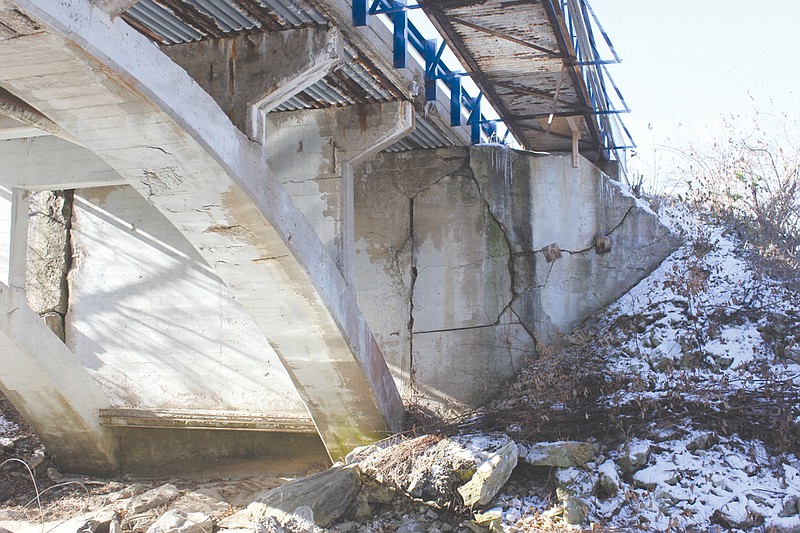The Fulton City Council learned Tuesday that the Seventh Street bridge project would have a $100,000 higher price tag than originally intended, due to time restraints on both the project and area bridge workers.
City Engineer Greg Hayes told the council at its meeting Tuesday that six bidders placed bids ranging from about $650,000 to $945,000, with the lowest bid coming in at $647,776.76 from J.C. Industries, Inc. in Jefferson City.
"Our consultant called and asked a few contractors who bid and some who didn't why it was such a high amount," Hayes said. "Some contractors said it was because of the tight construction deadline ... and they felt they'd have to put extra men on the job to get it done on time. Others because of the hard winter we had were still on projects they haven't gotten done yet ... and just couldn't commit to another project."
The Fulton Sun reported in December that the project that would extend the bridge by about 30 feet, replace the pedestrian walkways along the span, repair cracks in the retaining wall below the bridge and a number of other needed improvements was estimated to cost $576,000. The city planned to start in mid-May and have the bridge complete in time for Westminster College students to return from summer.
In an effort to lesson the strain of the extra cost, Hayes sought and gained approval to ask the Missouri Department of Transportation to allocate funds from a federal infrastructure program that would be reimbursed next year.
Each year, MoDOT disperses about $44,000 to the city as part of the Surface Transportation Program (STP), a federal program that provides funds for projects on designated major roadways in states and municipalities. The funds would normally have to be used in a certain amount of time and on certain projects.
Hayes said the $44,000 alone was not enough to complete many projects - he said you could not install curbing from city hall to the post office for that cost - but would go a long way in making up the differential to help keep the bridge project in budget.
Hayes signed and sent his letter asking for MoDOT's permission to allocate the funds and seek reimbursement next year with the city council's permission. Councilpersons Mike West and Mary Rehklau voted against the initiative, citing concerns on the cost and using money that could be spent elsewhere.
Councilman Steve Moore argued that the bridge was important and in his past experience, it would be better to pay for the project now than to hold off in the hopes of spending less later. West argued it would be better to extend the deadline or rebid the project.
"I used to live on that side of town, so I know (how important) that bridge is," West said. "I agree it needs to be done, I just don't think we should have to pay that much more."
Hayes said that waiting or changing the project timeline could potentially garner the city lower bids, but it could also mean the price of the project increasing. He noted the cost of the city's animal shelter project increased 5 percent in six months.
He also said available project funds could also decrease if the city waits. Like the STP funds, some money has to be used in a certain amount of time from its dispersal.
If MoDOT declines the request or the program is not continued by Congress, the city would have to cover the additional cost on the project.
Director of Administration Bill Johnson said the city had a few budgetary options to help cover costs in case MoDOT did not approve the proposal, including pulling the funds out of the ongoing asphalt overlay project or cutting a dump truck from the city budget.

